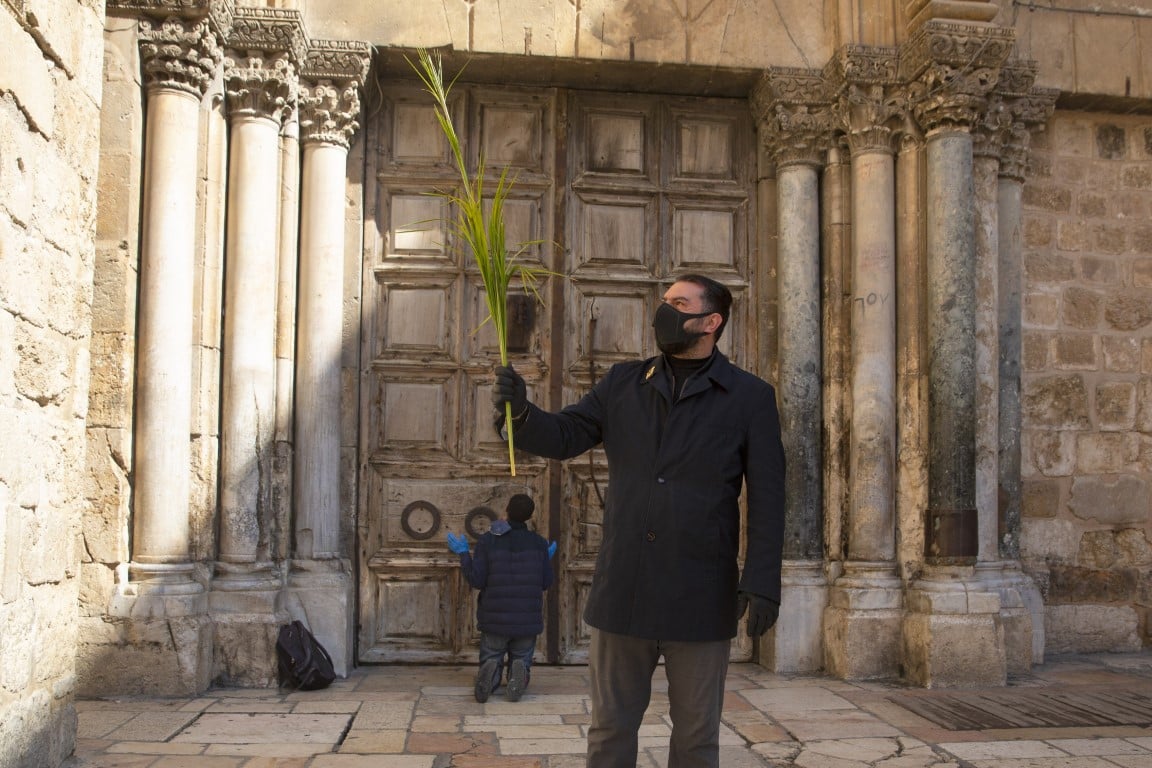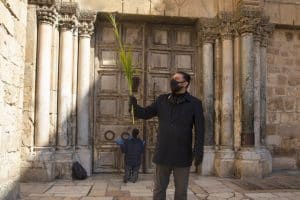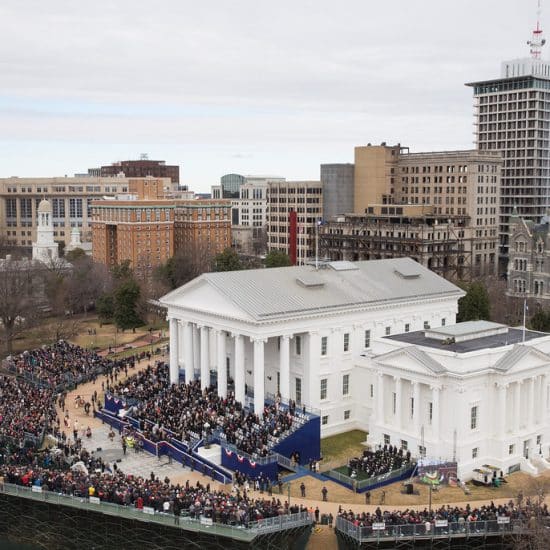
The next day the great crowd that had come for the Festival heard that Jesus was on his way to Jerusalem. They too palm branches and went out to meet him, shouting,
“Hosanna!”
“Blessed is he who comes in the name of the Lord!”
“Blessed is the king of Israel!”
(John 12:12-13)

Greg Mamula
A dear friend who recently passed away, preached a sermon he titled, “Jesus, did you see me waving?” I honestly never heard the actual sermon, but the title has stuck with me.
As Jesus rode his way down the Mt of Olives, through the upper Kidron Valley, past the remains of the old city, and up through east wall to the Temple platform itself, how many of us might have looked to the others in the crowd to ask, “Do you think he saw me? Do you think he heard my shouts of praise and blessings? Jesus, did you see me waving?”
Jesus, if he heard us, might answer our question with another, “To which king are you bestowing such blessings?”
Israel long believed they were active participants in the story of God. Their origin story was firmly rooted in the call of Abraham and made manifest in the Passover and subsequent escape from Egyptian bondage. In the final chapter of the cosmic drama, God alone will rule supreme with the people of Israel as his partners. In the interim the people are the living light to the nations to demonstrate unity between God and people. Despite all the setbacks, the Davidic line broken, the temple abused, conquering Empires coming and going, the deportations and destruction, resettlements and rebuilding, they still believed at any moment God would show up and the people would unite with God to rule the nations at last. Hosanna indeed.
When and how was heavily debated.

A Christian worshipper holds a palm frond outside the Church of the Holy Sepulchre, believed by many Christians to be the site of the crucifixion and burial of Jesus Christ, in Jerusalem’s old city, on April 12, 2020. (Sebastian Scheiner/Associated Press)
Perhaps there would be a spiritual revival involved. Maybe a holy priest who could once again bridge the gap between people and God. The rebuilt temple of course would be central, serving as the primary residence of God. Maybe a royal king would unite the people and rule with justice and righteousness. What if a suffering servant took upon themselves the sins of the people? Would God then have mercy and act on their behalf? Some longed for a conquering military hero to oust the wicked foreign empires once and for all, giving the land back to the people. Perhaps after the mighty battles they would repurpose their swords as garden tools.
All had been tried by other leaders and claimed messiahs. All had failed.
As Christians in America, we, too, believe we are part of the ongoing story of God’s active presence in the world. And I wonder, if Jesus sat in the bed of an old truck parading its way through our main streets if we would shout and wave and ask, “Jesus, did you see us waving? Can you hear us cheering?”
If he asked, “To which king were you waving?” would we ask for a magnetic holy personality who can stir up evangelistic revivals and pull thousands to stadiums and millions into live streams? A political leader with the right social agenda and access to legislators to enforce/protect our values? A woke moral standard-bearer who is canceled on behalf of our corporate sin, but provides no path to reconciliation? An hero with a semi-automatic who would nobly use targeted violence against our enemy of the week in the name of national security?
We too have placed our hope in each. All has failed.
The thing about the circuitous road from Palm Sunday to Resurrection Sunday is it forces us to ask, “What king are we cheering for?” The Gospel of John goes to great lengths discussing the identity of Jesus. Nearly everyone in the story misses it. Even the ones who got it, only realized what was happening after the resurrection.
At first his disciples did not understand all this. Only after Jesus was glorified did they realize that these things had been written about him and that these things had been done to him. (John 12:16)
After a year living with new limits and new opportunities, the question I keep asking this Holy Week is “What king am I cheering for? Is it actually Jesus or some western idealized version of a better version of myself?”
What sort of king rides into the epicenter of politics and religion on a donkey and declares them both out of step with God’s plan? What sort of king welcomes friend and adversary to his table proclaiming he is dying for both? What sort of king allows violence to do its worst to prove violence does not win? What sort of king heals the sick, welcomes the outsider, and weeps with and for his people? What sort of king walks out of his tomb to breath the Holy Spirit into the world?
I think a great many of us, myself included, get swept up the parade of our own expectations, hopes, anxieties, and identities placing them on Jesus and ask, “Jesus, did you see me waving? Did you hear me cheering?”
It turns out that Jesus is a suffering, saving, and sovereign king who cannot and will not be co-opted by our expectations of him, God, or the church. King Jesus took all our expectations with him to the cross and left them in the tomb. The resurrected King Jesus is where heaven and earth meet. The resurrection invites us to become part of the family of God and participants in this kingdom. We are called to bear witness to this new kingdom.
Jesus, did you see me waving?
To which king are you waving?
Rev. Dr. Greg Mamula is the Associate Executive Minister for the American Baptist Churches of Nebraska, and a contributing writer for Word&Way. He is author of Table Life: An Invitation to Everyday Discipleship, to be published by Judson Press, available April 14, in print and e-reader versions from online distributers including Amazon. To learn more information visit www.table-life.org.






